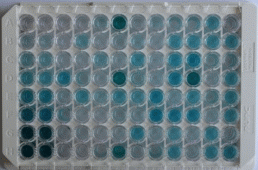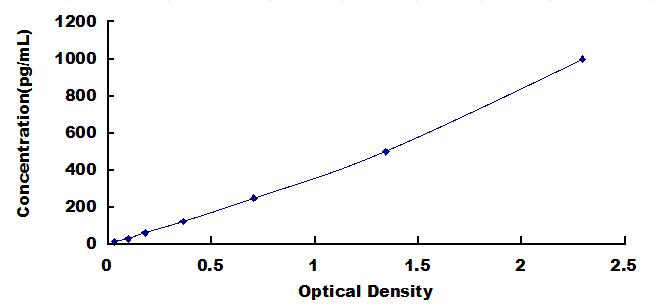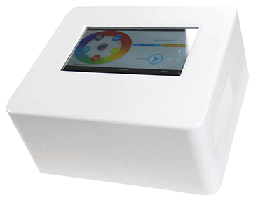Packages (Simulation)

Reagent Preparation

Image (I)
Image (II)
Certificate


ELISA Kit for Tumor Necrosis Factor Beta (TNFb)
LT; LTA; TNF-B; TNFSF1; Tumor Necrosis Factor Ligand Superfamily Member 1; Lymphotoxin Alpha
- Product No.SEA134Po
- Organism SpeciesSus scrofa; Porcine (Pig) Same name, Different species.
- Sample TypeSerum, plasma, tissue homogenates, cell lysates, cell culture supernates and other biological fluids
- Test MethodDouble-antibody Sandwich
- Assay Length3h
- Detection Range15.6-1,000pg/mL
- SensitivityThe minimum detectable dose of this kit is typically less than 6.1pg/mL.
- DownloadInstruction Manual
- UOM 48T96T 96T*5 96T*10 96T*100
- FOB
US$ 529
US$ 756
US$ 3402
US$ 6426
US$ 52920
For more details, please contact local distributors!
Specificity
This assay has high sensitivity and excellent specificity for detection of Tumor Necrosis Factor Beta (TNFb).
No significant cross-reactivity or interference between Tumor Necrosis Factor Beta (TNFb) and analogues was observed.
Recovery
Matrices listed below were spiked with certain level of recombinant Tumor Necrosis Factor Beta (TNFb) and the recovery rates were calculated by comparing the measured value to the expected amount of Tumor Necrosis Factor Beta (TNFb) in samples.
| Matrix | Recovery range (%) | Average(%) |
| serum(n=5) | 80-89 | 81 |
| EDTA plasma(n=5) | 95-103 | 98 |
| heparin plasma(n=5) | 96-104 | 101 |
Precision
Intra-assay Precision (Precision within an assay): 3 samples with low, middle and high level Tumor Necrosis Factor Beta (TNFb) were tested 20 times on one plate, respectively.
Inter-assay Precision (Precision between assays): 3 samples with low, middle and high level Tumor Necrosis Factor Beta (TNFb) were tested on 3 different plates, 8 replicates in each plate.
CV(%) = SD/meanX100
Intra-Assay: CV<10%
Inter-Assay: CV<12%
Linearity
The linearity of the kit was assayed by testing samples spiked with appropriate concentration of Tumor Necrosis Factor Beta (TNFb) and their serial dilutions. The results were demonstrated by the percentage of calculated concentration to the expected.
| Sample | 1:2 | 1:4 | 1:8 | 1:16 |
| serum(n=5) | 93-105% | 86-94% | 99-105% | 91-105% |
| EDTA plasma(n=5) | 84-99% | 96-105% | 94-105% | 80-103% |
| heparin plasma(n=5) | 98-105% | 91-99% | 99-105% | 79-89% |
Stability
The stability of kit is determined by the loss rate of activity. The loss rate of this kit is less than 5% within the expiration date under appropriate storage condition.
To minimize extra influence on the performance, operation procedures and lab conditions, especially room temperature, air humidity, incubator temperature should be strictly controlled. It is also strongly suggested that the whole assay is performed by the same operator from the beginning to the end.
Reagents and materials provided
| Reagents | Quantity | Reagents | Quantity |
| Pre-coated, ready to use 96-well strip plate | 1 | Plate sealer for 96 wells | 4 |
| Standard | 2 | Standard Diluent | 1×20mL |
| Detection Reagent A | 1×120µL | Assay Diluent A | 1×12mL |
| Detection Reagent B | 1×120µL | Assay Diluent B | 1×12mL |
| TMB Substrate | 1×9mL | Stop Solution | 1×6mL |
| Wash Buffer (30 × concentrate) | 1×20mL | Instruction manual | 1 |
Assay procedure summary
1. Prepare all reagents, samples and standards;
2. Add 100µL standard or sample to each well. Incubate 1 hours at 37°C;
3. Aspirate and add 100µL prepared Detection Reagent A. Incubate 1 hour at 37°C;
4. Aspirate and wash 3 times;
5. Add 100µL prepared Detection Reagent B. Incubate 30 minutes at 37°C;
6. Aspirate and wash 5 times;
7. Add 90µL Substrate Solution. Incubate 10-20 minutes at 37°C;
8. Add 50µL Stop Solution. Read at 450nm immediately.
GIVEAWAYS
INCREMENT SERVICES
-
 Single-component Reagents of Assay Kit
Single-component Reagents of Assay Kit
-
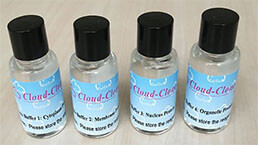 Lysis Buffer Specific for ELISA / CLIA
Lysis Buffer Specific for ELISA / CLIA
-
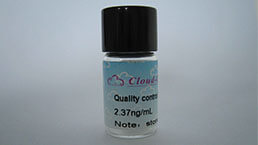 Quality Control of Kit
Quality Control of Kit
-
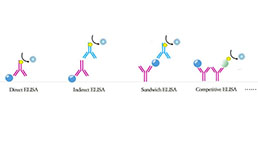 ELISA Kit Customized Service
ELISA Kit Customized Service
-
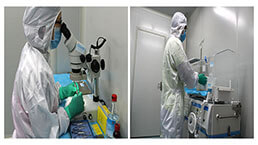 Disease Model Customized Service
Disease Model Customized Service
-
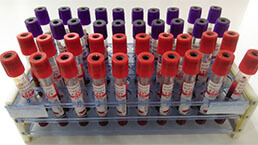 Serums Customized Service
Serums Customized Service
-
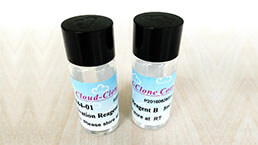 TGFB1 Activation Reagent
TGFB1 Activation Reagent
-
 Real Time PCR Experimental Service
Real Time PCR Experimental Service
-
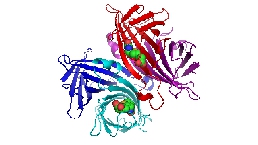 Streptavidin
Streptavidin
-
 Fast blue Protein Stain solution
Fast blue Protein Stain solution
-
 Single-component Reagents of FLIA Kit
Single-component Reagents of FLIA Kit
-
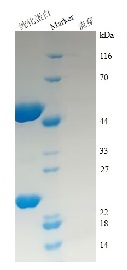 Streptavidin-Agarose Beads
Streptavidin-Agarose Beads
| Magazine | Citations |
| Journal of Applied Physiology | Simvastatin attenuates sympathetic hyperinnervation to prevent atrial fibrillation during the postmyocardial infarction remodeling process PubMed: 22984252 |
| Journal of Translational Medicine | Effectiveness of pure argon for renal transplant preservation in a preclinical pig model of heterotopic autotransplantation Pubmed:26847569 |
| International Journal of Stem Cell Research and Transplantation | Protective Role of Bone Marrow Derived Mesenchymal Stem Cells-Conditioned Medium in the Infarcted Myocardium: The Potential Role of Selected Cytokines IJST-2328-3548-04-803 |
| Probiotics Antimicrob Proteins | Effect of Multi-Microbial Probiotic Formulation Bokashi on Pro-and Anti-Inflammatory Cytokines Profile in the Serum, Colostrum and Milk of Sows, and in a … Pubmed:29305686 |
| Parasites & Vectors | Fasciola gigantica excretory-secretory products (FgESPs) modulate the differentiation and immune functions of buffalo dendritic cells through a mechanism … Pubmed: 32680553 |
| Microbiome changes in patients with chronic heart failure with preserved ejection fraction correlate with fibrosis markers: Description of a Russian cohort | |
| BMC MUSCULOSKELETAL DISORDERS | Elevated lymphotoxin-¦Á (TNF¦Â) is associated with intervertebral disc degeneration 33441130 |
| Catalog No. | Related products for research use of Sus scrofa; Porcine (Pig) Organism species | Applications (RESEARCH USE ONLY!) |
| RPA134Po01 | Recombinant Tumor Necrosis Factor Beta (TNFb) | Positive Control; Immunogen; SDS-PAGE; WB. |
| APA134Po01 | Active Tumor Necrosis Factor Beta (TNFb) | Cell culture; Activity Assays. |
| PAA134Po01 | Polyclonal Antibody to Tumor Necrosis Factor Beta (TNFb) | WB; IHC; ICC; IP. |
| MAA134Po21 | Monoclonal Antibody to Tumor Necrosis Factor Beta (TNFb) | WB; IHC; ICC; IP. |
| SEA134Po | ELISA Kit for Tumor Necrosis Factor Beta (TNFb) | Enzyme-linked immunosorbent assay for Antigen Detection. |
| LMA134Po | Multiplex Assay Kit for Tumor Necrosis Factor Beta (TNFb) ,etc. by FLIA (Flow Luminescence Immunoassay) | FLIA Kit for Antigen Detection. |

